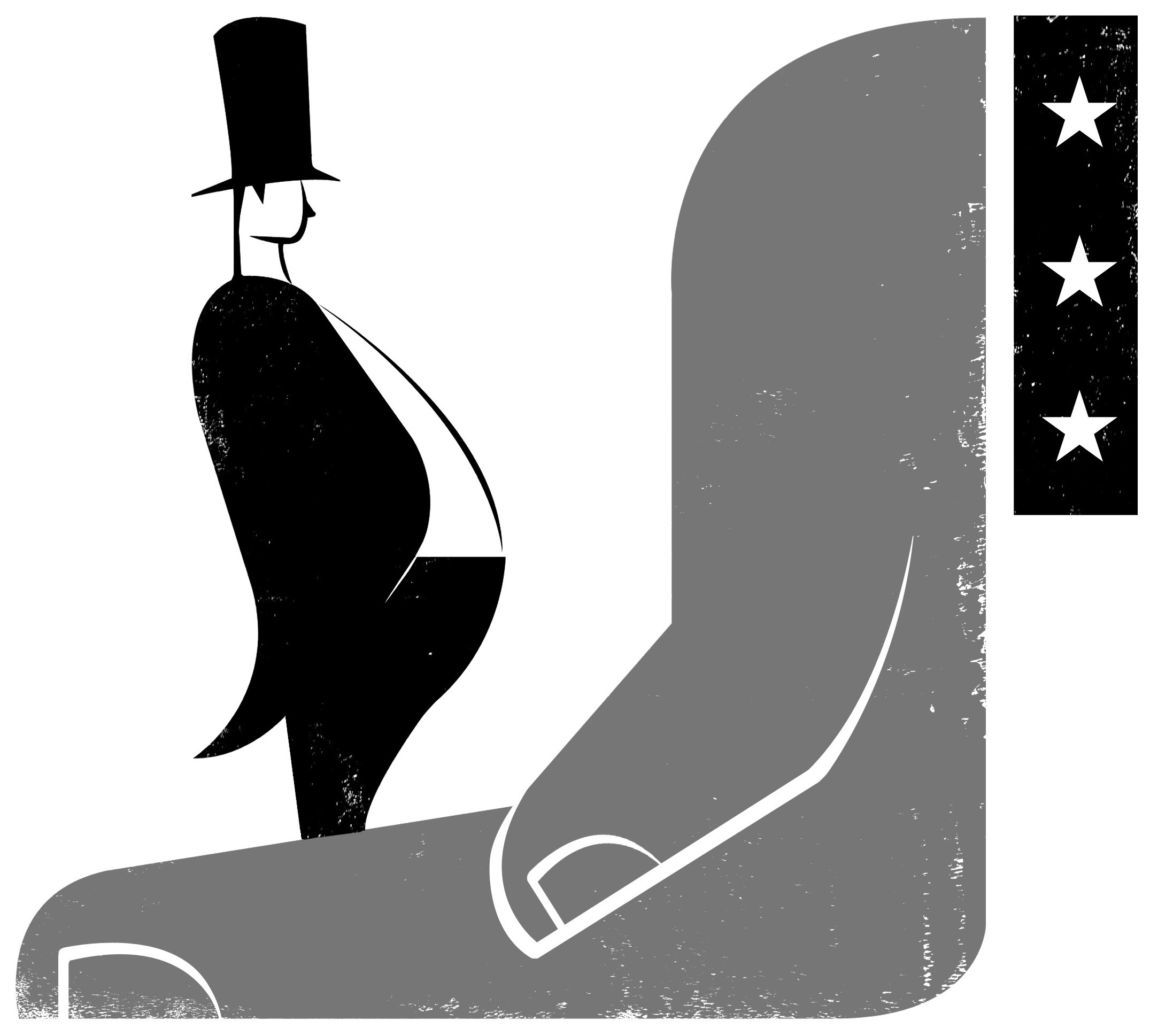During the most recent Democratic presidential debate, Elizabeth Warren vigorously defended her proposal for a new type of tax in the United States—an annual tax on wealth. “It’s time to tax the top one-tenth of 1 percent fortunes in this country,” she said.
Indeed, the very rich do need to pay higher taxes. Their tax burden has declined for decades, most recently when Congress passed the Trump tax bill at the end of 2017. Over the same time period, the tax burden on average American families has risen, while tax cuts for the rich have led to deficits that hinder the government’s willingness to help middle-class and low-income households. It is no wonder polls find broad support for a wealth tax—more than 60 percent of all adults and 50 percent of Republicans. Even 60 percent of millionaires and some billionaires support a wealth tax.
But there is a difference between a desirable end—raising taxes on the rich—and the best means to get there. In the case of the wealth tax, the means sound reasonable, but the policy won’t do what we want and comes with a large number of negatives.
Before getting into these details, we need to understand the proposal. Few Americans are familiar with wealth taxes, because the United States has never had one. However, they have been introduced in other countries.
These are taxes imposed annually on the net worth of citizens. The tax, typically 1 to 3 percent, gets applied to all wealth above some amount—usually many millions of dollars. Elizabeth Warren has proposed a 2 percent tax on fortunes in excess of $50 million and a 3 percent tax on fortunes in excess of $1 billion. She claims that such a tax would raise $275 billion, which would fund many of her spending programs.
Each year, those with considerable wealth would be required to state the value of their cash, their stocks and bonds, their homes and any other assets of value they own, subtract any debt they have, and then pay the government a small fraction of their net worth. Some assets (such as privately held businesses, collectibles and homes) are not bought and sold regularly, making it hard to estimate their value. Heated and difficult-to-resolve disputes with the IRS seem inevitable.
Such practical difficulties, however, are not a main reason to be skeptical about taxing wealth.
Perhaps the biggest negative is that the wealth tax does not have a very distinguished history. In 1696, England and Scotland taxed the occupants of homes based on the number of their windows. It was seen as a tax on the affluent, who owned bigger homes with more windows. It also led to considerable tax avoidance that is visible in the U.K. even today. If you look up in London, you can see many buildings with former windows bricked over in order to avoid paying the tax.
While popular when enacted, the window tax became extremely unpopular once put into practice. It was finally repealed in 1851. Something similar has happened nearly every time a nation has tried to tax wealth. In 1990, half the 36 member nations of the Organization for Economic Cooperation and Development taxed wealth holdings on a regular basis. By 2000 only around one-third did. Today only France, Norway and Switzerland continue to do so.
Another problem stems from tax avoidance (symbolized by the bricked-over windows). This reduces revenues from the tax and limits its ability to reduce inequality. The problem is particularly acute in a global economy where wealth can move quickly and easily from one nation to another. For this reason, a wealth tax requires that all nations participate. Otherwise, wealth will flow to places that don’t tax it. These nations will neither collect wealth data nor have data to report to the U.S. IRS. The wealthy will purchase second homes there and invest in stocks and bonds on their financial exchanges. Cash, bank accounts and other assets will move abroad to escape taxation even more than they do already.
If the United States obtains wealth information from another country, we will have to reciprocate by sending wealth information about American citizens to tax officials there—all of it, from everyone, so that foreign officials can determine who might owe them money. I already have Nigerian princes wanting my bank account information. After avoiding such pleas, I really don’t want the U.S. government sending my bank information there.
Tax avoidance problems will also arise within the United States. A simple way to avoid paying a wealth tax would be to take cash out from bank deposits (either permanently or temporarily at the end of a year) and then not report it. Perhaps cash will get converted into gold, creating yet another example of how bricks can help people escape the wealth tax.
More worrisome are the cash withdrawals from U.S. financial institutions. These will have the potential to create the kind of bank run famously depicted in the 1946 Jimmy Stewart movie It’s a Wonderful Life. Because financial institutions are able to lend only a fraction of their deposits, mass withdrawals will curtail the ability of financial institutions to lend money for business startups, credit cards, car loans, and home mortgages. The economic consequences of this would be severe.
Another big problem concerns whether a wealth tax is constitutional. At the very least, it would be challenged in the courts, with support from the extremely affluent, who would be big losers if a wealth tax were implemented. At some point, the Supreme Court would decide its fate. Given the current composition of the court, the wealth tax is likely to encounter a hard time passing the constitutionality test. And there is a clear precedent the justices could invoke—the income tax was itself declared unconstitutional by the court in 1895. It took nearly 15 years for the 16th Amendment to be passed, which then allowed Congress to impose an income tax. A wealth tax would probably meet the same fate, though not necessarily the same final outcome.
Last but not least, if there were no other options to raise revenue for spending and to reduce inequality, it might be worth seeking solutions to these and other hurdles facing wealth taxation. But many changes can be made to the U.S. tax system that would reduce inequality and generate considerable revenue without a large number of negative side effects.
The top marginal tax rate can be raised, maybe to 50 percent (where it was in 1982) or even to 70 percent (prevailing from the mid-1960s until 1982), as Alexandria Ocasio-Cortez has proposed. Other changes to the individual income tax would help. Carried interest, as well as capital gains and dividends, can be taxed at normal rates rather than preferential or lower rates. Special tax breaks favoring the rich can be repealed or reduced.
Also, we can reduce inequality by taxing estates more, or by converting the estate tax (which Republicans have succeeded in labeling a “death tax” although just a few thousand people pay the tax each year) into an inheritance tax that treats such transfers as regular income for tax purposes. Both would tax a good deal of money currently passed from one generation to the next and reduce the perpetuation of inequality over time.
Raising the corporate income tax would also tax the wealthy, who own the vast majority of corporate stock. In the decade following World War II, the corporate income tax provided 25 percent of government revenues. Since then it has declined consistently as a revenue source; now the corporate income tax provides just 6 percent of the total government tax receipts. The lost revenue has been made up by taxing individuals more, mainly middle-class families.
The practical challenge is to choose the best approach or set of approaches. While popular at present, an annual tax on wealth has far too many drawbacks to be effective. A multitude of better options exist to deal with income and wealth inequality.
Steven Pressman is professor of economics at Colorado State University, author of Fifty Major Economists, 3rd edition (Routledge, 2013), and president-elect of the Association for Social Economics.





I had a couple of questions on the article.
1. Banks are required to report transaction in excess of $10,000, why couldn’t these rules be adapted to report capital (cash) flight?
2. The US in recent years has expropriated the SWIFT system to serve as an instrument of economic warfare. Since a transfer of wealth would more than likely involve it, why couldn’t it be adapted as means of monitoring capital flight?
3. The run on the bank scenario was effectively replicated a week or two, with the FED effectively stepping in to reduce the repo rate diffusing if not stemming the rise, why wouldn’t an attempt at this scenario be thwarted?